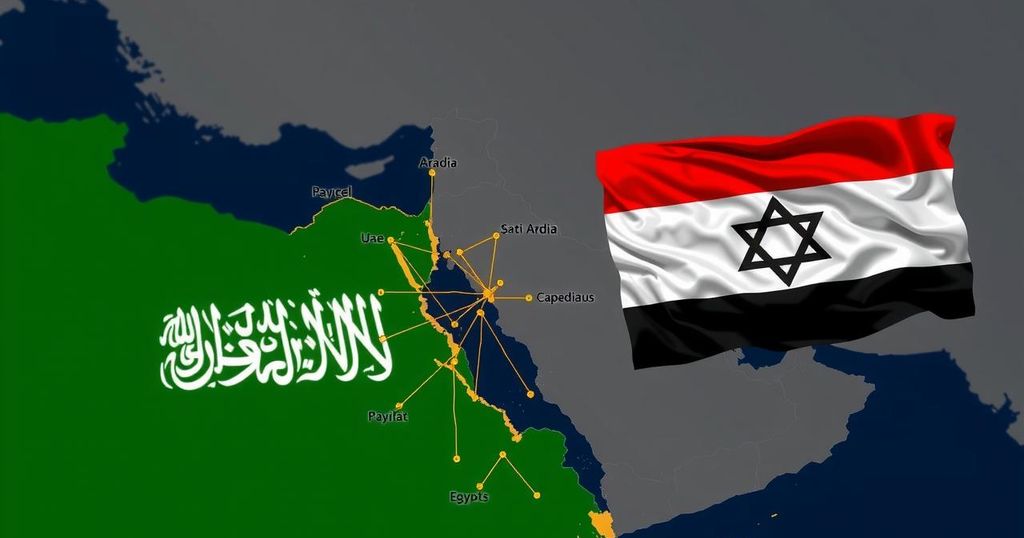A Quiet Realignment: The Subtle Shift in Saudi Arabia, UAE, and Egypt’s Support for Israel Against Iran
In response to Israel’s military strike on an Iranian base, Saudi Arabia, the UAE, and Egypt have adopted notably measured and neutral positions, steering clear of outright condemnations. The UAE emphasized dialogue and international law, Saudi Arabia spoke of regional security, and Egypt warned of potential confrontations affecting international stability. Collectively, these responses indicate a strategic realignment acknowledging Israel’s role in countering Iranian influence, hinting at a possible shift towards cooperative relations.
In the intricate landscape of Middle Eastern geopolitics, the responses of Saudi Arabia, the United Arab Emirates (UAE), and Egypt to Israel’s latest military actions against an Iranian base reveal a notable shift in diplomatic tone. This recent episode eschews the customary denunciations typically directed at Israel, in favor of more measured responses that emphasize regional stability and a diplomatic approach to addressing tensions. The UAE’s position is particularly indicative of this nuanced stance. While it issued a condemnation of the military targeting of the Islamic Republic of Iran, it simultaneously called for utmost self-restraint and highlighted the importance of dialogue and adherence to international law. This framing suggests that the UAE is advocating for diplomacy and maintaining the status quo rather than escalating conflict, reflecting its alignment with the strategic considerations of Israel through frameworks like the Abraham Accords. Saudi Arabia mirrored this approach, acknowledging the attacks as a violation of sovereignty while prioritizing regional security and stability. The measured tone of Saudi Arabia’s response denotes a pragmatic acknowledgment of Israel’s security concerns, indicating a significant evolution in the kingdom’s traditional foreign policy, which was once more assertive against Israel. Moreover, Egypt extended this subtle diplomacy further. In its statement, Egypt warned against serious confrontations that could threaten security both regionally and internationally, urging a swift ceasefire across various fronts. This broader focus points to Egypt’s diplomatic pragmatism, as it seeks to mediate tensions and preserve stability along its borders. Collectively, the responses from these three nations suggest a strategic realignment that accommodates Israel’s defensive actions while prioritizing their mutual interests in countering Iranian influence and ensuring regional security. These developments reflect a softening in previously rigid stances, hinting at a future where Arab nations may view Israel not solely as a rival but as a potential partner in achieving regional stability.
The Middle East has long been characterized by complex alliances and a range of hostile relations, particularly concerning Israel and its Arab neighbors. However, recent geopolitical shifts suggest emerging alignments as nations like Saudi Arabia, the UAE, and Egypt reconsider their stances amidst rising concerns over Iran’s influence in the region. These countries, while traditionally supportive of the Palestinian cause, are increasingly recognizing the importance of stability and security in their respective territories, leading to a reevaluation of their relationships with Israel.
The responses from Saudi Arabia, the UAE, and Egypt represent a significant diplomatic recalibration. Each nation’s carefully chosen words reflect an awareness of shared interests, notably the need to curb Iran’s growing influence while maintaining regional stability. This evolution in their diplomatic discourse indicates a potential for future cooperation with Israel, signifying a departure from past hostility towards a more nuanced engagement that prioritizes collective security and mutual interests.
Original Source: www.jpost.com




Post Comment